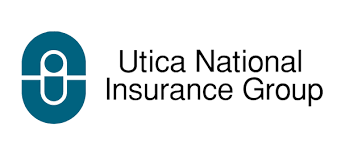You Can Prevent Expensive Water Damage at Home
September 30, 2015
When you think of property insurance the first thing that comes to mind is probably fire. At least that was the main concern when insurance companies were first formed in the U.S. back in the 18th century.
But according to the Insurance Information Institute (I.I.I.), “Water damage is one of the most common and costly disasters affecting U.S. residences, accounting for billions of dollars in losses to homeowners and renters annually.” Water loss, including frozen and burst pipes accounted for 22% of all homeowners insurance claims in a recent year with the average claim reaching $5,531.
The risk of water damage from common household appliances and plumbing such as broken washing machine hoses, leaky dishwasher hoses, or toilet overflows should worry every homeowner.
The thing about water is that it causes damage to everything it touches. That’s why the greatest danger for catastrophic loss comes when you and your family are not at home. Whatever appliance has broken leaks water into the house. Over a short period of time, a leak in the hose in the upstairs washing machine can cause damage to the room it’s in plus the ceiling, walls, and furniture in the rooms below.
Anyone in our Utica area who has experienced the disastrous floods we have had over the last few years will understand how devastating water damage can be. There’s no question that water damage can be as severe as a fire in many cases.
The Institute for Business and Home Safety offers some valuable tips on how you can prevent water losses.
Inspect Hoses and Faucets.
Check hoses leading to water heaters, dishwashers, washing machines and refrigerator icemakers annually. Replace those with cracks or leaks, and replace them all every five to seven years.
Inspect Showers and Tubs.
Check the seal and caulking around showers and tubs to make sure they are watertight.
Shut Off Water Supply.
When you’re away on vacation, be sure to shut off the water supply to the washing machine. Also, never leave the house while the washer or dishwasher is running.
Know the Location of the Main Water Shut-off Valve in Your Home.
A damaged hose or burst pipe can send water racing into your home. By knowing where this valve is located and how to shut off the main water supply, you can save yourself time and money.
Install an Emergency Pressure Release Valve in Your Plumbing System.
This will protect against the increased pressure caused by freezing pipes and can help prevent your pipes from bursting.
Check Pipes
Look closely for cracks and leaks and have the pipes repaired immediately.
We also suggest that when you leave on vacation you ask your neighbor to check the house. Have them bring in the mail for you each day and then look around to be sure the house and its appliances are in order.
You can give us a call to be sure your homeowners policy is at least a Homeowners 2 Broad Form. That’s because the basic Homeowners 1 does not cover accidental discharge or over flow of water from within a plumbing, heating, or air conditioning system or household appliance.
The main thing is to keep alert as to what appliances are going at any given time and know how to shut off your water supply in an emergency. But be most aware of the damage leaking appliances can do when you leave for any extended period of time. And enjoy a worry free time away.
Until next time,
The SZW Team
Scalzo, Zogby & Wittig, Inc. is your New Hartford area independent insurance agent. Call us for a quote on insurance for your home, car, business, or life at 315.792.0000.




